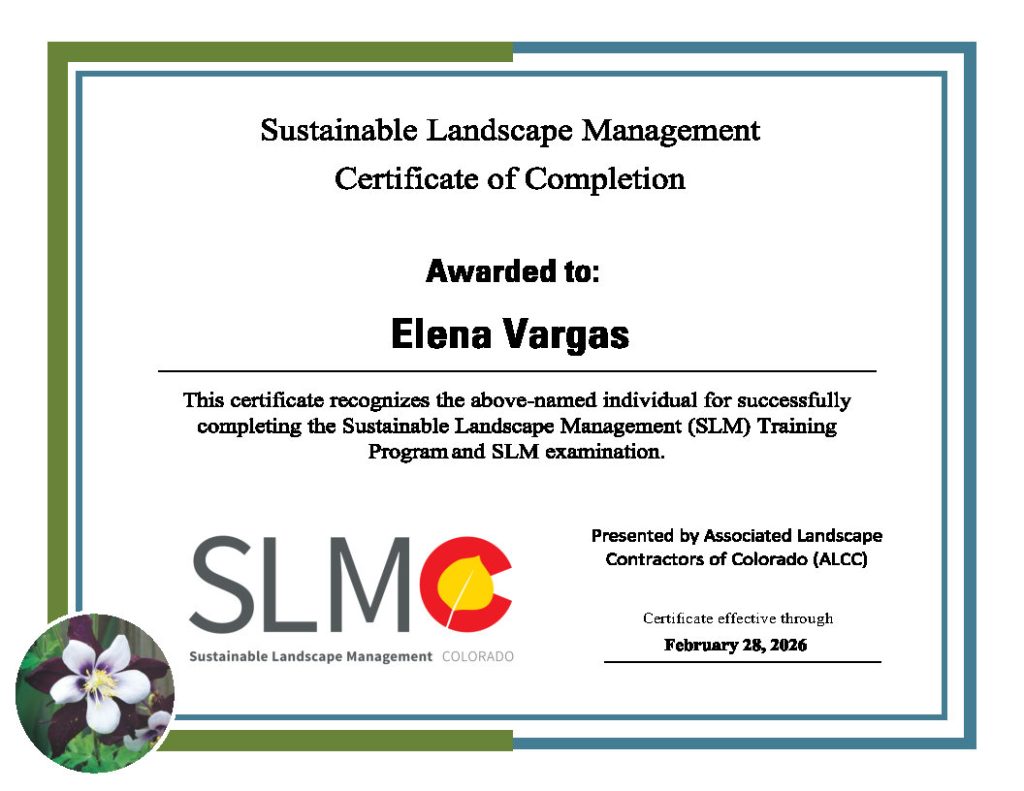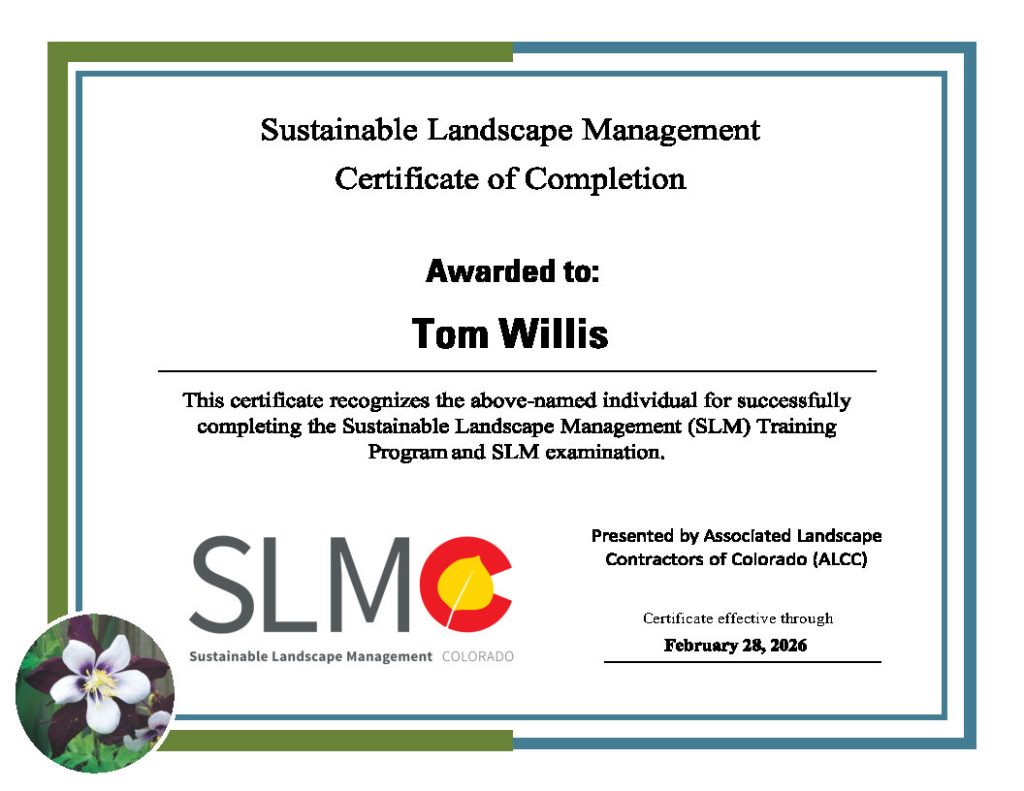Sustainable Landscape Management.
This month we had four employees complete the ALCC’s SLM Class. We are very proud as a company to have employees dedicated to education and sustainability.
What is SLM?
“The ultimate success and value of urban landscapes and related elements are fundamentally dependent on sustainable practices if overall site aesthetics and health of plant materials are a priority. An urban landscape is a combination of living materials and interdependent natural systems which are dependent on healthy relationships between them. Healthy and well-maintained plants, soils, micro-climates, and ecosystems provide benefits for each to thrive. The economic demand for efficiency and drive for lower cost of development and maintenance has generated practices and methods that eliminate some of the naturally provided benefits that promote healthy, long-lasting landscapes. Sustainable site design, construction, and maintenance are more than just something that is being talked about. Sites that have sensibly applied installation and maintenance principles for landscape related elements will be inherently sustainable.”

Why SLM?
- Water Conservation: Colorado is a semi-arid state with limited water resources, and water scarcity is a significant concern. Sustainable landscaping practices such as xeriscaping can significantly reduce water usage compared to traditional landscaping, helping to conserve this precious resource.
- Drought Resistance: Colorado frequently experiences drought conditions, and sustainable landscaping techniques can help landscapes remain resilient during periods of limited rainfall. Drought-resistant plants, efficient irrigation systems, and soil management practices can all contribute to maintaining healthy landscapes even in times of water stress.
- Soil Health: The soil in Colorado can be quite poor in quality, with challenges such as low organic matter content and high alkalinity. Sustainable landscaping practices such as composting, mulching, and using native plants can improve soil health over time, enhancing its ability to support plant growth and reducing the need for chemical fertilizers.
- Wildlife Habitat: Colorado is home to diverse wildlife, including many species that rely on specific habitats for survival. Sustainable landscaping practices, such as incorporating native plants and creating wildlife-friendly features like bird feeders and water sources, can help support local biodiversity and create habitats for native wildlife.
- Erosion Control: The mountainous terrain in parts of Colorado makes erosion a significant concern, especially in areas affected by wildfires or heavy rainfall. Sustainable landscaping techniques such as planting ground cover, using erosion-control blankets, and implementing terracing can help prevent soil erosion and protect landscapes from degradation.
- Reduced Maintenance: Sustainable landscaping often requires less maintenance than traditional landscaping methods once established. This can save homeowners time, effort, and money in the long run, making it an attractive option for many residents of Colorado.
- Overall, sustainable landscaping in Colorado is essential for conserving water, maintaining resilient landscapes in the face of drought and other environmental challenges, supporting biodiversity, and reducing maintenance needs.
We highly recommend the class to everyone. You do have to be an ALCC member to sign up for the course. Here’s where you can find them: http://www.alcc.com

